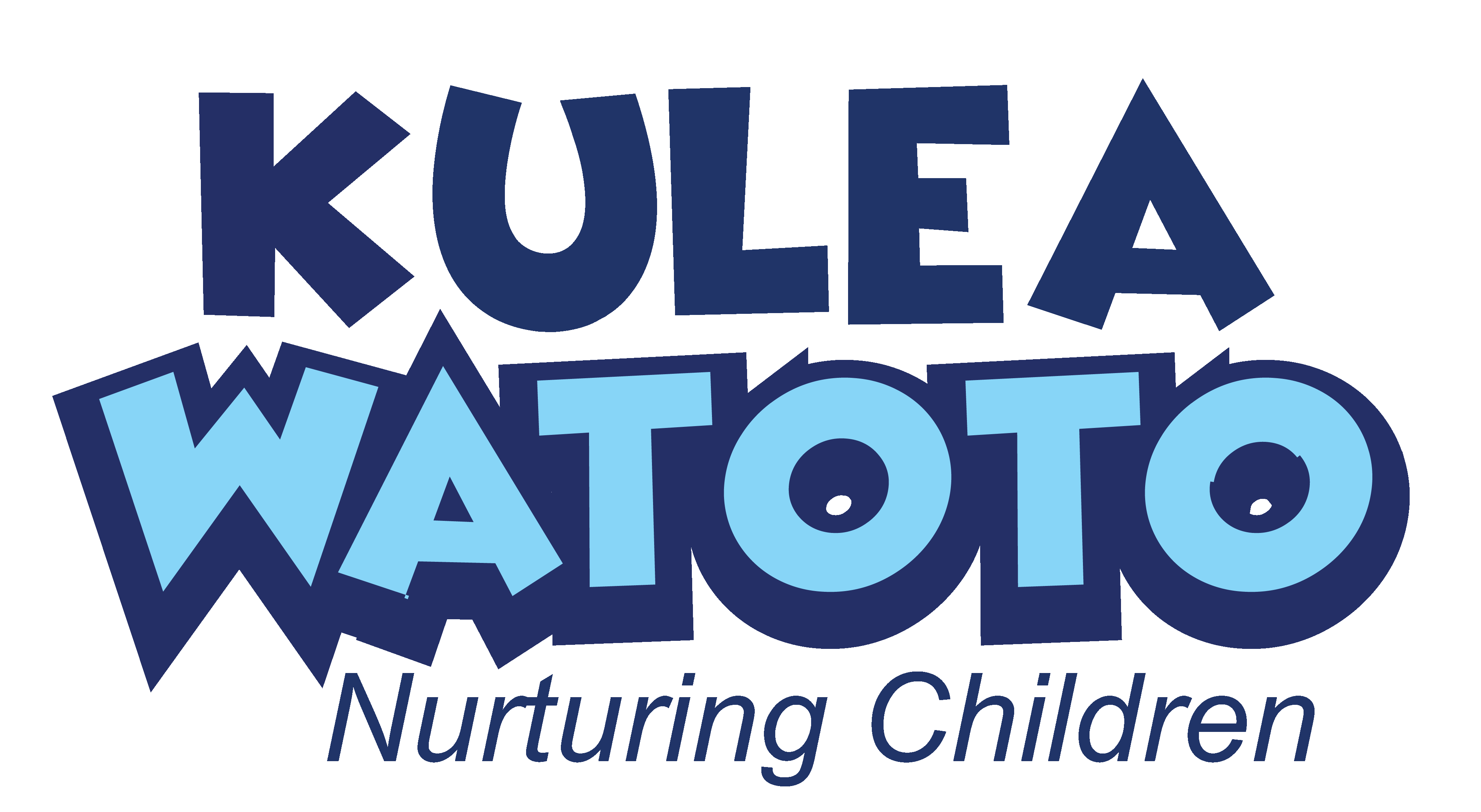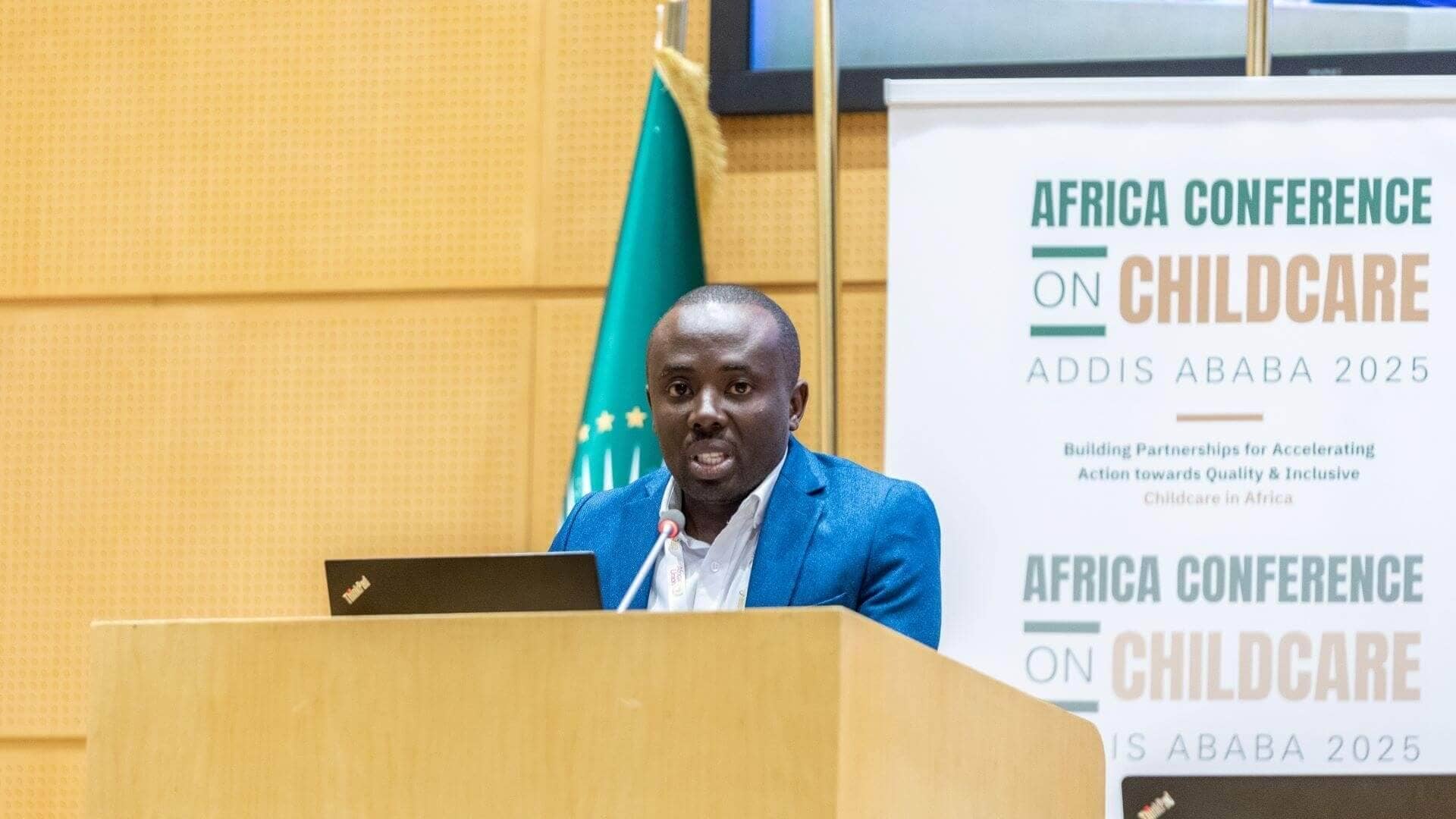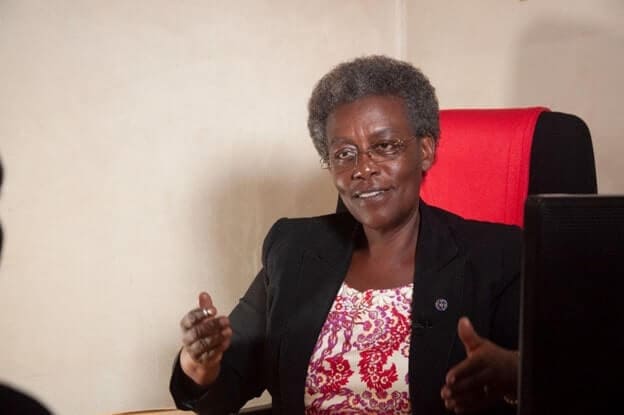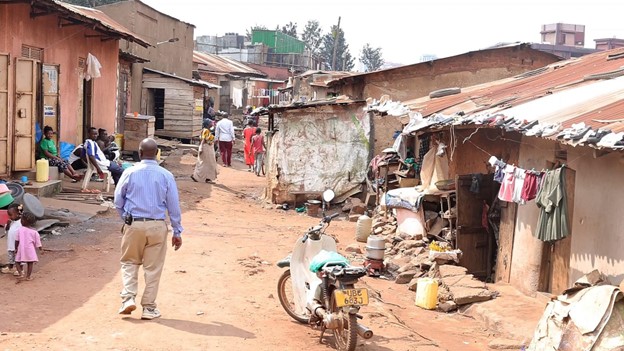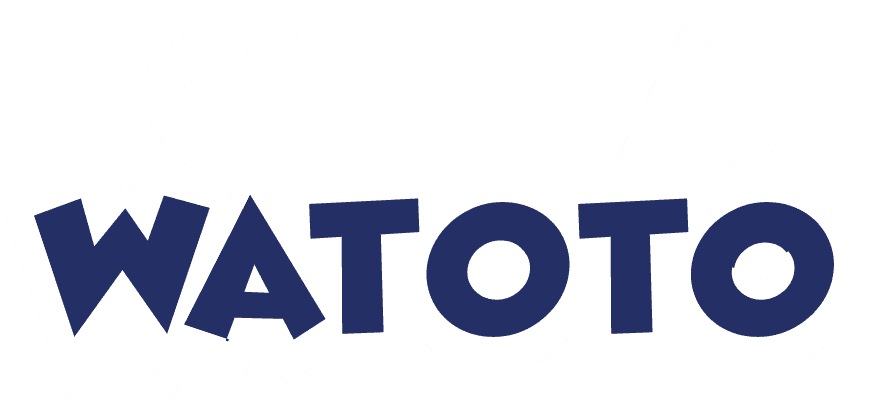How Kulea Watoto is Changing Caregivers’ Lives
How Kulea Watoto is Changing Caregivers’ Lives
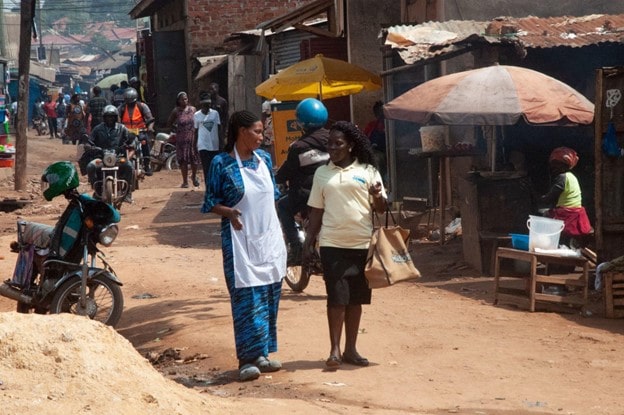
Margaret Nakavuma Kisakye, a trained Village Health Team (VHT) member (right), interacts with Scovia Kyalisima (left), a beneficiary under the Kulea Watoto Pprogramme in Nsambya, Makindye division
When Margaret Nakavuma Kisakye walks through the communities of Kampala Road in Makindye Division, she carries more than just health tips. She brings warmth, reassurance, and the kind of practical guidance that helps parents in poverty riddled areas see their children and themselves with fresh eyes. As a trained Village Health Team (VHT) member under the Kulea Watoto programme, Nakavuma has become a trusted presence in homes across the area, supporting caregivers to build safer, more nurturing environments for their children.
Among the many homes she has supported is that of Scovia Kyalisima, a mother and caregiver whose life was once defined by deep poverty and despair like many around her. Her turning point came when Kulea Watoto entered her life.
“I received a lot of support from Auntie Maggie ,” Kyalisima says, using the familiar name by which Nakavuma is known in the community. “She visited me regularly and taught me how to take better care of my children, how to play with them, talk to them, and even how to cook more nutritious meals. I didn’t know that when you play with a child, they’re also learning. I didn’t know talking helps their mind grow.”
From abject poverty to savings
Kyalisima’s children were once found on the streets by VHTs affiliated with Kulea Watoto - in tattered clothes, playing unattended. When one of the boys was approached, he was asked to show where their mother was, and that’s how Kyalisima’s household came to the attention of the VHTs. At the time, she had lost all hope. But everything began to change. Kyalisima was enroled under the project and taken through a series of trainings that included mindset change, financial literacy, visioning, responsive parenting among others. After these trainings, the project offered her a cash grant of 800,000 Ugandan shillings.
She used the money to set up a grocery stall in her village serving the community, and joined a merry-go-round savings group, Victory, that was birthed from the project trainings. Here she saved between 5,000 Ugandan shillings and 20,000 Ugandan shillings every month. With accrued savings, Kyalisima was able to acquire a loan which she used to buy a sewing machine and began mending and tailoring clothes for people in her neighborhood. What started as a survival skill has become a vital service for the community. Now, she is able to feed her family, put her children through school, and even continue to save 5,000 Ugandan shillings each week.
This resilience is all the more striking considering the obstacles Kyalisima has faced. About ten years ago, she lost several fingers in an accident. She is also raising her late sister’s children along with her own. Yet today, she runs her stall and sewing business with determination and pride.
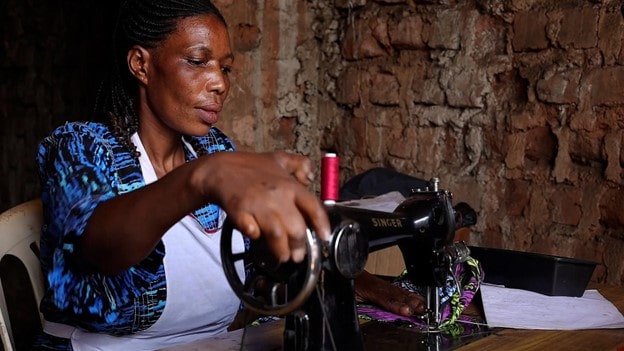
Scovia Kyalisima proudly shows off her sewing skills that have been realised with funding from the Kulea Watoto Project.
Becoming a community beacon
Kyalisima has also enrolled in a locally-facilitated English language course to broaden her understanding and improve her ability to interact with more clients. Eager to learn, she continues to build her skills through this learning that happens just behind her stall. In exchange for the lessons, Kyalisima is teaching her English teacher how to use a sewing machine — a mutual exchange that reflects her commitment to growth and community connection.
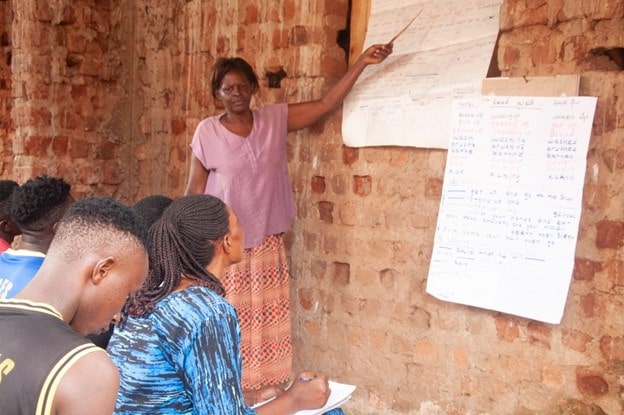
Scovia Kyalisima and colleagues attending the English language session in Nsambya, Makindye division. Photo credit:
The impact of Kulea Watoto is visible not only in Kyalisima’s transformation but in the many homes Nakavuma visits every month. Through the programme’s Caring for Child Development training, VHT members like her have become a lifeline for caregivers who previously lacked even basic information about child development.
“We feel blessed to support families through Kulea Watoto,” Nakavuma explains. “As VHTs, we are invited into homes every month and are trusted to share what we’ve learned. Every time we leave a home, we know we’ve said something that can change a child’s life.”
The play boxes provided by the programme have been especially effective in encouraging interactive parenting. “My youngest child benefited so much from the toys,” says Kyalisima. “They helped him learn about his body and improved his thinking.” Even her child with a disability has shown remarkable progress. “I started spending more time with him, talking to him, and letting him play with other children. His condition has improved.”
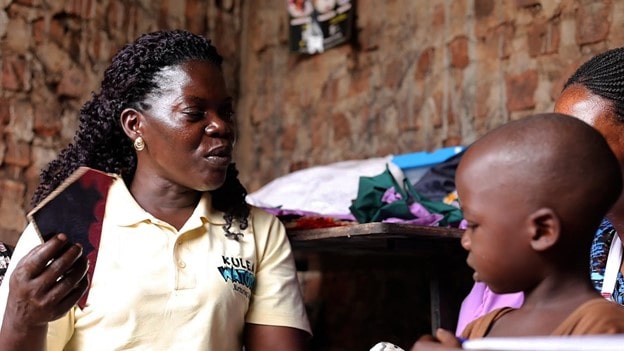
Margaret Nakavuma Kisakye - VHT interacts with the children during her routine visit to homes in Nsambya, Makindye division.
Becoming an ECD Advocate
Nakavuma recalls meeting parents who initially didn’t understand the value of their role in early childhood learning.
“We met many who didn’t see themselves as part of their children’s development. But now, they’re playing, talking, and even helping each other. They’re proud to be active in their homes.”
The knowledge passed on includes essential lessons in hygiene, nutrition, and daily caregiving routines. “Parents now understand that proper feeding helps children grow mentally and physically,” she says. “And the children are learning too, they remind each other to wash up or share toys.”
For both Nakavuma and Kyalisima, the changes go deeper than routine. They represent dignity restored, futures rebuilt, and hope renewed.
“I love seeing children thrive,” says Nakavuma. “I’ve been with Kulea Watoto since the start and I’m not leaving. I love how it helps women and children.”
Kyalisima agrees wholeheartedly.
“Even if you have a child with a disability, don’t lose hope. When you get support and guidance from people who know what they’re doing, you start seeing progress. I’ve seen it myself. Now my children are in school. They know how to express themselves, talk to others, and they’re eager to learn.”
She adds,
“We never had help like this before. I’m very thankful to Kulea Watoto. This programme should continue because it really reaches people, especially our children.”
Together, their stories offer a compelling testament to what is possible when communities are supported with knowledge, tools, and encouragement. Through Kulea Watoto, caregivers are not only learning how to raise children but how to rebuild their lives, one play box, one conversation, and one hopeful step at a time.
